For general dental health, maintaining proper oral hygiene is essential, and having braces makes this even more necessary. Braces are a successful orthodontic procedure for realigning crooked teeth, but they can make maintaining good oral hygiene more difficult. Plaque and food particles can readily gather in the crevices created by the brackets and wires, increasing the risk of gum disease and tooth decay. However, you can make sure that your teeth remain healthy during your orthodontic treatment by using the proper methods and taking good care of them. We’ll give you the vital advice and strategies you need to keep your oral hygiene at its best while wearing braces in this blog.
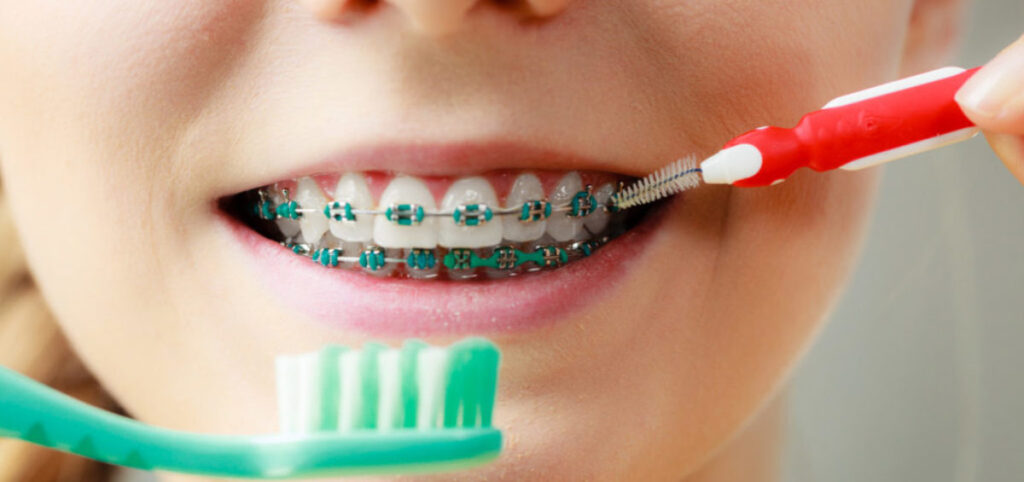
Table of Contents
1. Techniques for brushing for Oral Hygiene
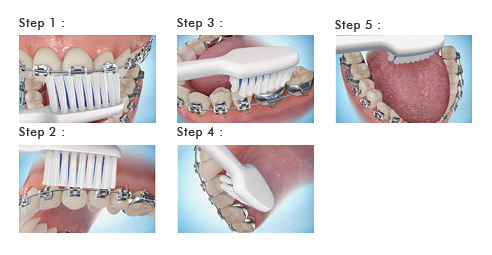
Proper tooth brushing is the cornerstone of healthy oral hygiene. It’s essential to pay close attention to brushing practices when wearing braces to ensure thorough cleaning. Observe the following advice:
Select the Correct Instruments:
Pick an electric toothbrush or a toothbrush with soft bristles that can easily go into the crevices between brackets and cables. For easier movement, think about using a toothbrush with a smaller head.
Brush Your Teeth After Each Meal:
To avoid food particles being trapped in your teeth, try brushing your teeth right after each meal or snack. Cavities and plaque accumulation will both be reduced as a result of this.
Angle Your Brush:
Holding your toothbrush at a 45-degree angle, carefully brush the brackets and gumline with little circular motions. Examine your teeth and braces from every angle.
Interdental Brushes:
Use proxy brushes or interdental brushes to clean in between the wires and brackets. These tiny brushes help remove plaque from hard-to-reach places.
2. Techniques for Flossing
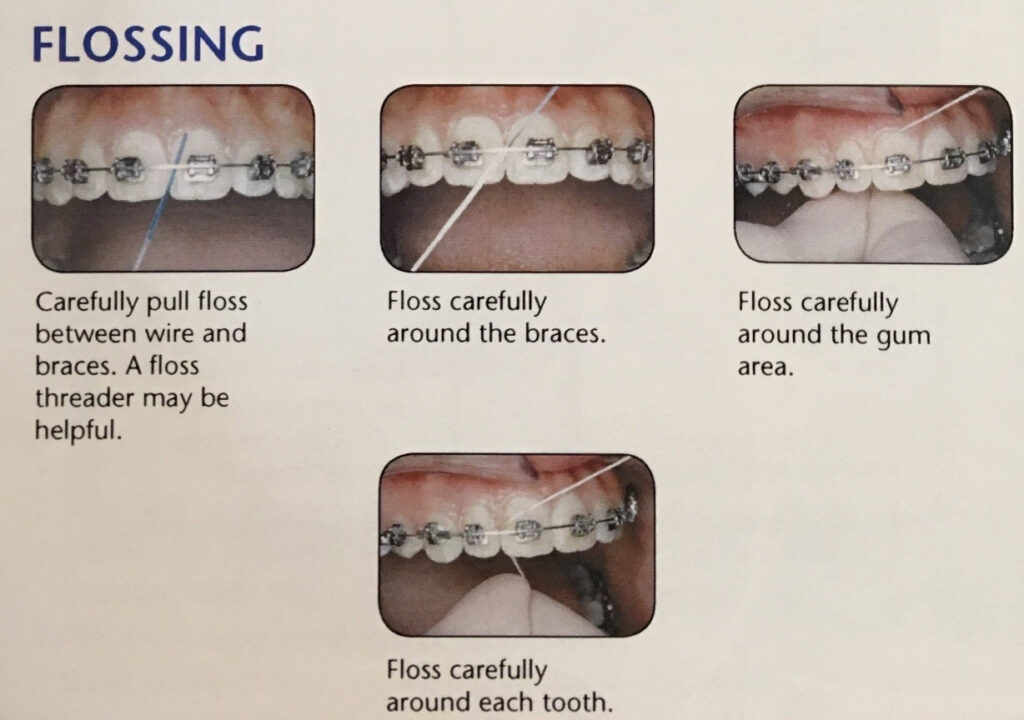
With braces, flossing can be difficult, but it is essential to remove plaque and food particles from hard-to-reach places. Here’s how to properly floss:
Use A Floss Threader:
A floss threader is a little instrument that aids in guiding the floss beneath the wires. Pass the floss carefully between the teeth, reaching below the gumline, after threading it through the threader’s loop.
Wax-Coated Floss:
Choose wax-coated floss because it glides between teeth and braces more readily. Replace the floss as soon as it starts to fray or seem worn.
Water Flossers:
To remove plaque and food fragments, think about utilizing a water flosser or oral irrigator. These tools employ a spray of water to clean the area surrounding the braces and in between the teeth.
3. Nutrition and Diet

In particular, when wearing braces, maintaining a nutritious diet is crucial for dental hygiene. Some foods might harm your braces or cause plaque to build up. Follow these recommendations:
Steer Away From Sticky Foods:
Sticky, chewy candies can become lodged in your braces, making thorough cleaning challenging.
Limit Sugary Foods:
Sugary foods and drinks might raise the risk of tooth decay, so try to limit your intake.
Cut Hard Foods Into Smaller Pieces:
If you prefer crunchy fruits and veggies, cut them into smaller, bite-sized pieces to prevent harming your braces.
Rinse Your Mouth:
To help remove food remnants and prevent plaque development, rinse your mouth with water or an antibacterial mouthwash after eating.
4. Dental Exams On A Regular Basis
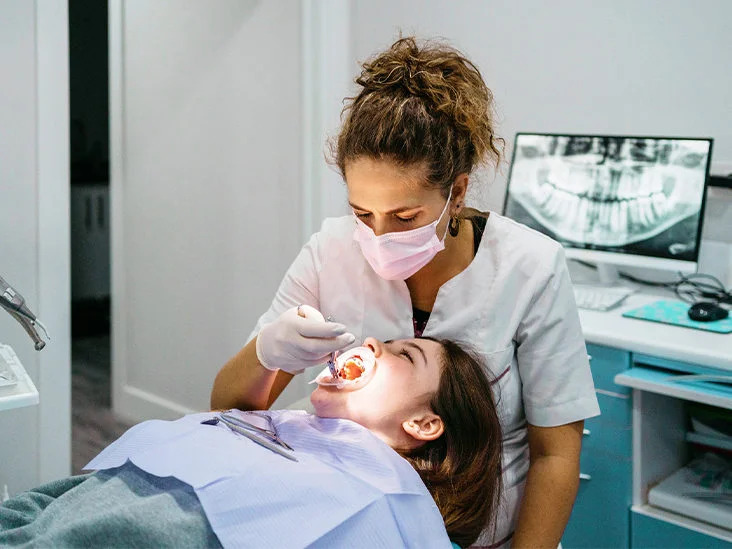
It’s important to have regular dental exams, especially if you’re wearing braces. Your orthodontist will keep track of your development, make any necessary modifications, and spot any oral health problems. Follow these suggestions and don’t forget appointments:
Professional Cleaning:
To get rid of tenacious plaque and tartar accumulation, schedule professional cleanings with your dentist or hygienist every six months.
Express Concerns:
Contact your orthodontist right away if you have any discomfort or detect any broken wires or loose brackets. Quick intervention can stop problems from getting worse.
How To Clean Teeth With Braces For Oral Hygiene:
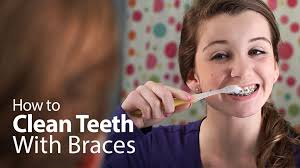
Maintaining optimal oral hygiene with braces requires dedication and consistent care. By following proper brushing and flossing techniques, making mindful dietary choices, and attending regular dental check-ups, you can ensure a healthy smile during your orthodontic treatment. Remember, the effort you put into oral hygiene while wearing braces will pay off in the long run, resulting in a straighter, healthier smile once your treatment is complete. Embrace these habits, and soon enough, you’ll be rewarded with a beautiful smile that will last a lifetime.


